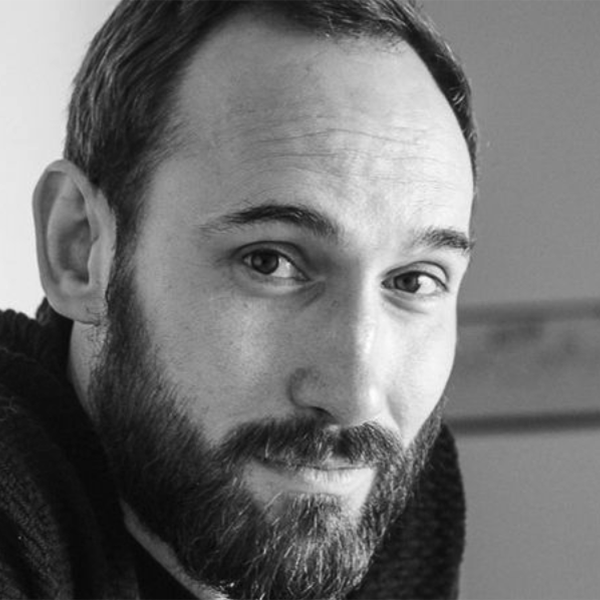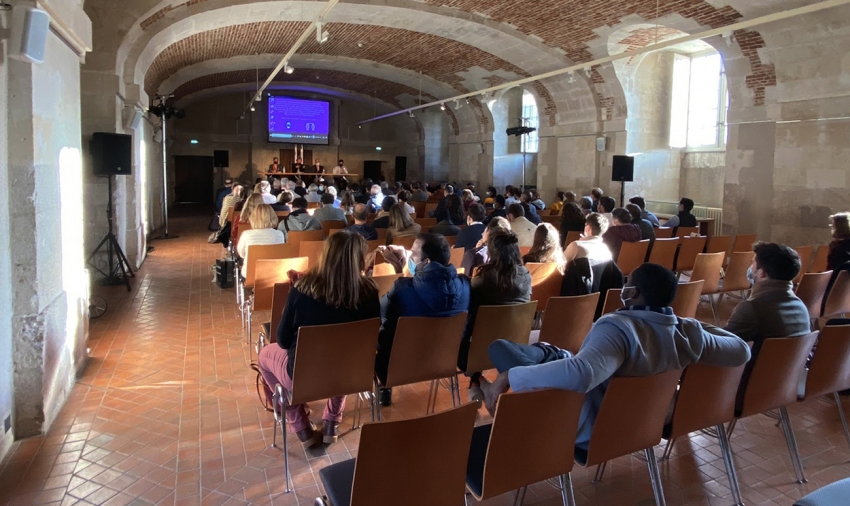SFS Malcolm Bowie Prize 2020 open for submissions
The award includes:
- a cash prize of £1000;
- expenses-paid travel to the next annual conference of the Society for French Studies;
- mention in the French Studies Bulletin and on the Society for French Studies website.
Further details, including previous winners, on the website:https://www.sfs.ac.uk/prizes/malcolm-bowie-prize.
[08/01/2020]
Guillaume Lachenal au FacSem le 7 janvier
 FACSEM LE 07 JANVIER DE 12H30 À 14H00
FACSEM LE 07 JANVIER DE 12H30 À 14H00
N'oubliez pas de vous inscrire pour ce FacSem : marina.abelskaiagraziani@sciencespo.fr
La direction scientifique de Sciences Po vous invite au FacSem de Guillaume Lachenal, Professeur des universités, chercheur au médialab et historien des sciences.
Il y présentera ses travaux autour du thème : "Épidémies, écosystèmes et ruines d'Empire. Recherches biohistoriques en terrain africain". Son exposé sera discuté par Paul-André Rosental, Professeur des universités et chercheur au CHSP.
05/01/2021
2021-2022 MIddle East Initiative - Research Fellowship Program
Call for Applications: 2021-2022 Middle East Initiative Research Fellowship Program
The Middle East Initiative Research Fellowship Program offers one-year fellowships for researchers at the pre-doctoral, post-doctoral, and junior faculty level for research related to Middle Eastern governance and public policy. All fellowships carry a stipend. Eligible candidates include advanced doctoral candidates, recent recipients of a Ph.D. or equivalent degree, and untenured faculty members. We welcome applications from political scientists, historians, economists, sociologists, and other social scientists. We also encourage applications from women, minorities, and citizens of all countries.
- Applicants for pre-doctoral fellowships: Applicants must have passed general examinations, advanced to candidacy, received dissertation prospectus approval, and concluded all necessary fieldwork for the dissertation by the time of application. The strong expectation is that pre-doctoral fellows will defend their dissertations at the end of their residency with us.
- Applicants for post-doctoral fellowships: Applicants who expect to complete their Ph.D. program prior to the fellowship can apply for a postdoctoral appointment, noting that postdoctoral fellowship offers are contingent upon submitting proof of Ph.D. completion prior to the September 1st fellowship start date.
Priority will be given to applications pursuing one of these six primary areas of focus:
- Improving Governance: Promoting the inclusivity, accountability, responsiveness, and efficiency of governing institutions and empowering the region's citizens.
- Building Peace: Addressing the sources of domestic and interstate conflict and generating durable political settlements.
- Revitalizing the State: Improving the capacity of state institutions and reforming social service delivery systems, with a special emphasis on health, education, and social protection.
- Broadening Financial and Labor Markets: Working to ensure that financial and labor markets in the Middle East are open, competitive, and inclusive.
- Governing Technology: Assessing how governments in the Middle East adapt to and integrate technological changes such as the growth of cyberspace, automation, and artificial intelligence, as well as how these advances in technology have shaped governance.
- Adapting to Environmental Challenges: Exploring how the governments of the region can cope and are coping with the challenges of water scarcity and climate change.
The fellowship application period for the 2021-2022 academic year is now open.
The application period will close on January 15, 2021.
Recommendations will be due on February 3, 2021.
Decisions will be announced by March 30, 2021.
All application materials must be submitted in PDF format through the official application portal.
CV/ Resume
- Unofficial transcript (pre-doctoral fellow applicants only)
- Research statement (3-5 pages) and Abstract (2-3 sentences)
- Writing sample (less than 50 pages) with abstract of 300 words or less
- Should be one published or unpublished piece written by the applicant (co-authored pieces not accepted) in English that will demonstrate his/her English-language writing ability
- Can be a journal article, book chapter, dissertation chapter, white paper, etc. you have produced in your field
- Contact information for 3 recommenders submitting letters on your behalf
This program is made possible through funding from the Emirates Leadership Initiative at Harvard Kennedy School. For more information regarding the program and application process, please visit
www.belfercenter.org/fellowship/middle-east-initiative.
Please submit inquiries to Mikaela Bennett, Coordinator for Research Programs and Student Engagement,
by e-mail at:mbennett@hks.harvard.edu.
[2021/01/04]
Les RDV de Blois 2020 : les débats et conférences sont en ligne

 Les RDV DE L'HISTOIRE à Blois, 10 octobre 2020.
Les RDV DE L'HISTOIRE à Blois, 10 octobre 2020.
Les événements organisés lors des Rdv de Blois 2020 sont maintenant en ligne.
Vous pouvez donc (ré)écouter les trois "cartes blanches" du Centre d'histoire organisées en 2020.
Le rôle politique du conseiller à l'Elysée
Le rôle politique du conseiller à l’Élysée : témoignages entrecroisés de François Hollande et de Bernard Poignant, regard des historiens et apport des archives.
avec
- Marc Lazar (Sciences Po, CHSP),
- Bernard Poignant (Agrégé d'histoire, ancien député-maire de Quimper et ancien conseiller auprès de François Hollande à l'Elysée),
- Odile Gaultier-Voituriez (Responsable de la coordination archivistique et documentaire du CEVIPOF et du CHSP, docteur en histoire et enseignante à Sciences Po),
- Mathieu Fulla (Docteur en histoire contemporaine, PRAG au Centre d'histoire de Sciences Po)
▸ vers le fonds Bernard Poignant
et
GOUVERNER DÉMOCRATIQUEMENT
avec
Alain Chatriot (Sciences Po, CHSP),
Stephen W. Sawyer (Professeur d'histoire, American University of Paris)
Pauline Peretz (Maître de conférences à l'Université de Paris 8 - Vincennes St-Denis)
Emmanuelle Avril (Professeure de civilisation britannique contemporaine à l'Université de la Sorbonne Nouvelle)
▸ vers la revue Histoire@Politique
et
Le pouvoir des images en Afrique
avec
Florence Bernault (Sciences Po, CHSP),
Erick Cakpo (Chercheur à l'Université de Lorraine),
Nora Greani Marie (Docteure en anthropologie culturelle à l'EHESS),
Geoffroy Heimlich (Archéologue et historien, expert à l'ICOMOS,
Steve-Régis "Kovo" Nsonde (Chercheur indépendant associé aux activités du CIRECK)
A Research position at the Italian-German Historical Institute
The Italian-German Historical Institute (ISIG) is a research center that promotes historical studies in the field of early modern and contemporary history. Research activities are highly interdisciplinary, transnational and currently dedicated to the theme of “Mediatization and mediality of history during the early modern and contemporary periods”. Alongside this the centre’s researchers develop projects in collaboration with other institutions and conduct individual studies in political, religious, social, cultural, legal, and economic history. The study activities promoted by ISIG maintain a constant dialogue with the most recent international historiographic trends [Read more]
18/12/2020









